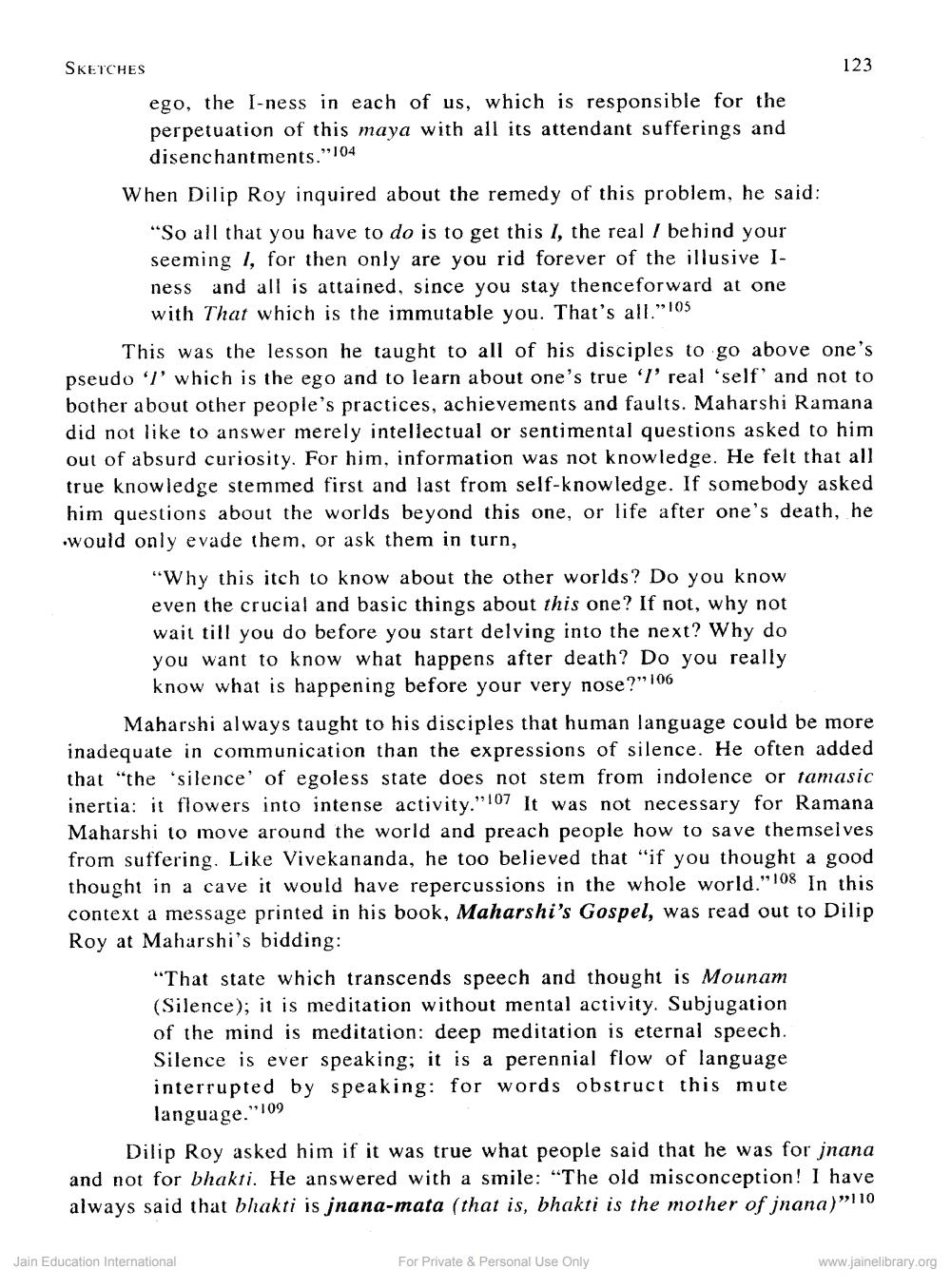________________
SKETCHES
123
ego, the I-ness in each of us, which is responsible for the perpetuation of this maya with all its attendant sufferings and
disenchantments."104 When Dilip Roy inquired about the remedy of this problem, he said:
“So all that you have to do is to get this I, the real / behind your seeming 1, for then only are you rid forever of the illusive Iness and all is attained, since you stay thenceforward at one
with That which is the immutable you. That's all.”105
This was the lesson he taught to all of his disciples to go above one's pseudo T which is the ego and to learn about one's true I real 'self' and not to bother about other people's practices, achievements and faults. Maharshi Ramana did not like to answer merely intellectual or sentimental questions asked to him out of absurd curiosity. For him, information was not knowledge. He felt that all true knowledge stemmed first and last from self-knowledge. If somebody asked him questions about the worlds beyond this one, or life after one's death, he would only evade them, or ask them in turn,
"Why this itch to know about the other worlds? Do you know even the crucial and basic things about this one? If not, why not wait till you do before you start delving into the next? Why do you want to know what happens after death? Do you really
know what is happening before your very nose?"\06
Maharshi always taught to his disciples that human language could be more inadequate in communication than the expressions of silence. He often added that "the silence of egoless state does not stem from indolence or tamasic inertia: it flowers into intense activity."107 It was not necessary for Ramana Maharshi to move around the world and preach people how to save themselves from suffering. Like Vivekananda, he too believed that "if you thought a good thought in a cave it would have repercussions in the whole world."108 In this context a message printed in his book, Maharshi's Gospel, was read out to Dilip Roy at Maharshi's bidding:
"That state which transcends speech and thought is Mounam (Silence); it is meditation without mental activity. Subjugation of the mind is meditation: deep meditation is eternal speech. Silence is ever speaking; it is a perennial flow of language interrupted by speaking: for words obstruct this mute
language."109
Dilip Roy asked him if it was true what people said that he was for jnana and not for bhakti. He answered with a smile: "The old misconception! I have always said that bhakti is jnana-mata (that is, bhakti is the mother of jnana)"110
Jain Education International
For Private & Personal Use Only
www.jainelibrary.org




